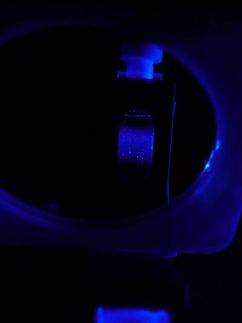Process Optimization Key to Innovation in Smart Material Technology
Manufacturing smart materials is a complex process that requires significant control over the physical environment, sample size, interfacial diffusion, and mass transfer properties. Optimisation of these processes in absolute terms is essential for long-term success in the industry.
"To enable and accentuate the design and the exploration of new materials and properties, there is a need to improve synthesis and processing of materials," says Technical Insights Research Analyst Kasturi Nadkarny from Frost & Sullivan. "Researchers also need to focus on material modelling and advanced analytical techniques."
Tailor-made materials from complex arrangements of atoms and molecules that incorporate superior levels of precision and control are expected to enhance smart materials technologies. The successful integration of the hardware and software based infrastructures is also set to accelerate technology development in the field of smart materials and systems.
High-throughput screening (HTS) consisting of hardware interface tools for technology assessment, decision control, and logistics has become instrumental for research into materials, which would have otherwise been neglected. Technology spillover from drug delivery has led to the development of combinatorial chemistry methodologies. Although these methods are expensive, most smart materials are an outcome of one or more modifications made in the methodologies involving combinatorial chemistry. Researchers are now combining combinatorial chemistry methodologies with nanotechnology to develop novel smart materials with higher performance standards.
"Nanotechnology brings with it the possibilities of designing, altering, and controlling material structure at nanoscale levels in order to enhance material performance and process efficacy," explains Nadkarny. Nanotechnology is finding wide applications in varying products such as sensors and electronic devices, and promises to push smart materials technology into diverse industries. However, scalability from the lab-scale pilot plants to the industrial scale is a significant challenge during the commercial introduction of a new smart material.
Nevertheless, the commercial potential of smart materials is irrefutable, especially in the defence, aerospace, healthcare, electronics, and semiconductor industries. The automotive sector presents the largest near-term commercial market for smart materials. Researchers look to target unique automotive products such as smart glass for automobile windows that are capable of regulating heat. The computer industry is also adopting smart materials for read/write head micropositioners and next-generation data storage devices. Many multinational corporations are also evaluating materials such as plastics, polymers, and ceramics for next-generation computer chips.
Topics
Organizations
Other news from the department business & finance
These products might interest you

Limsophy by AAC Infotray
Optimise your laboratory processes with Limsophy LIMS
Seamless integration and process optimisation in laboratory data management

LAUDA.LIVE by LAUDA
LAUDA.LIVE - The digital platform for your device management
Comprehensive fleet management options for every LAUDA device - with and without IoT connectivity

Get the analytics and lab tech industry in your inbox
By submitting this form you agree that LUMITOS AG will send you the newsletter(s) selected above by email. Your data will not be passed on to third parties. Your data will be stored and processed in accordance with our data protection regulations. LUMITOS may contact you by email for the purpose of advertising or market and opinion surveys. You can revoke your consent at any time without giving reasons to LUMITOS AG, Ernst-Augustin-Str. 2, 12489 Berlin, Germany or by e-mail at revoke@lumitos.com with effect for the future. In addition, each email contains a link to unsubscribe from the corresponding newsletter.



























































